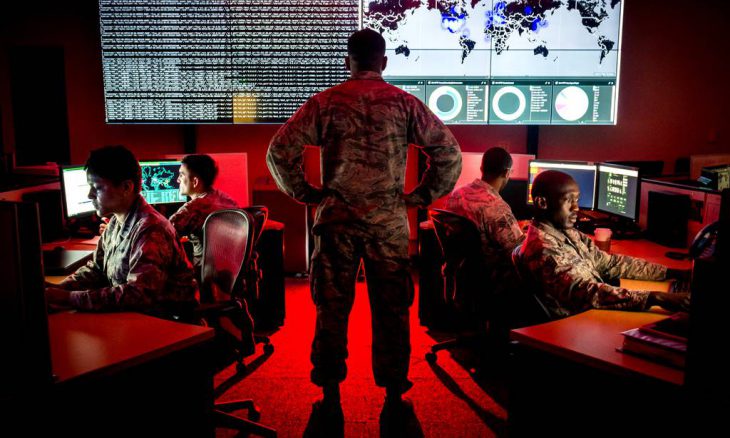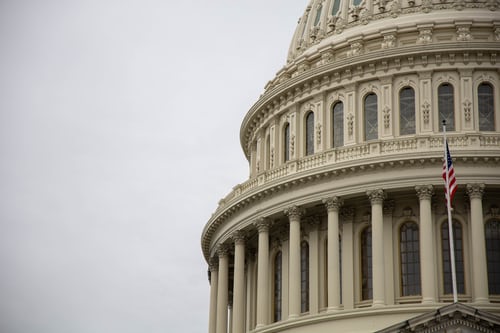U.S. Bolsters Defenses After Cyber-attacks
Has modern technology radically altered how nations wage war?
PRAY FIRST for our leaders in the Department of Defense and national security agencies as they work to protect America from cyber threats.
“Behold, God is my salvation; I will trust, and will not be afraid: for the LORD JEHOVAH is my strength and song; and he is become my salvation.” – Isaiah 12:2
What is Cybersecurity?
Cybersecurity is the safeguarding of computer systems, networks, and digital data from theft, damage, or unauthorized access. It encompasses various measures to secure information technology infrastructure and prevent cyber threats.
In the digital age we live in, for any country, cybersecurity is of utmost importance. It ensures the protection of critical infrastructure, including energy, transportation, communications, and financial systems. A breach in any of these sectors could have severe consequences for national security and public safety.
Threats can come from foreign or domestic actors. While not exclusive, if a foreign threat is loosely tied to another country, it may focus on leveraging power or weakening another country, while domestic threats will often have no national allegiance and instead focus on financial gain.
National Cybersecurity Strategy
In March of 2023, the White House released a National Cybersecurity strategy providing a vision and approach to enhancing cybersecurity measures for the United States. This builds upon items such as Executive Order 14028, National Security Memorandum 5 and 10, and shifting U.S. government agencies toward zero-trust cybersecurity principles.
The primary components include making cyber defense options and strategies easier, cheaper, and more effective; and shaping security to make cyber incidents and errors less widespread or lower negative impact.
The underlying strategy to accomplish this will be to encourage market forces to drive security and resilience innovations and promote coordinated and collaborative future investments. It also seeks to forge international partnerships for responsible state behavior and cracking down on malicious cyber actors.
Has the United States been attacked already?
Per the Cybersecurity & Infrastructure Security Agency (CISA), in 2021 alone, there were three separate attacks on Waste and Wastewater Sector facilities in California, Maine, and Nevada. Organizations were urged to implement measures such as limiting remote access to critical components and adding multi-factor authentication protocols.
Highly publicized, 2021 also held the Colonial Pipeline ransomware attack that disrupted fuel and gas supply across the United States. This placed a spotlight on how one component of the infrastructure can have a ripple effect across the country as it resulted in jet fuel shortage for many major airlines and induced panic-buying of gasoline in several southeastern states.
Earlier this year, one of the largest healthcare technology companies in the United States experienced a cyber-attack that caused widespread outages and resulted in nationwide delays in pharmacy prescription processing. The company handles the medical records and billing for approximately one-third of U.S. patients.
In the Headlines
On Thursday, February 22nd, 2024, national cell phone provider AT&T experienced a nationwide outage that left tens of thousands of its customers without cell service, unable to make calls, send texts, or access the internet. It highlighted that thousands of industries relying on AT&T services, in turn, also experienced disruptions, and the implications were felt nationwide. Truckers relying on Electronic Logging Devices (ELDs) faced compliance concerns due to the outage and this impacted shipping and supply chain logistics. And users were unable to even make 911 calls during the outage, violating the 911 Act.
After restoring services, AT&T responded that their initial finding was that the outage was due to an internal technical mistake while they were expanding their network. Despite this finding, several federal agencies including the Department of Homeland Security (DHS), the FBI, and the Federal Communications Commission, have begun an investigation to ensure that there was no external cyber-attack involved.
The White House national security spokesman John Kirby emphasized that they would thoroughly examine the situation and collaborate with industry partners to uncover the truth. Kirby added, “We’re being told that AT&T has no reason to think that this was a cyber-security incident. But again, I want to be careful. We won’t know until an investigation has been completed.”
The recent AT&T outage highlights the importance of maintaining infrastructure and the federal need to bolster national cybersecurity, especially as the nation approaches a presidential election.
HOW THEN SHOULD WE PRAY:
— Pray for elected officials and appointed national security advisors as they work to protect the nation from cyberattacks and threats to our nation’s infrastructure. If any of you lacks wisdom, let him ask God, who gives generously to all without reproach, and it will be given him (James 1:5).
— Pray for God to be at work in the minds of our federal leaders, that they would seek wisdom and understanding from God in all things in order to make the best decisions for the United States. Oh, the depth of the riches and wisdom and knowledge of God! How unsearchable are his judgments and how inscrutable his ways! (Romans 11:33).
CONSIDER THESE ITEMS FOR PRAYER:
- Pray for FCC officials as they investigate the cell service outage.
- Pray U.S. cyber security personnel as they seek to secure networks from attacks.
- Pray wisdom for the heads of federal agencies as they work with leaders in the private sector regarding technology and infrastructure.
- Pray for leaders in private sectors that manage infrastructure and communications technology to seek the best methods for protecting customers and the nation.
Sources: WhiteHouse.gov, CISA.gov, DHS.gov, NBC News, CNNReason, CNBC, Fox Business, National Institutes of Health, Newsweek, NY Times









